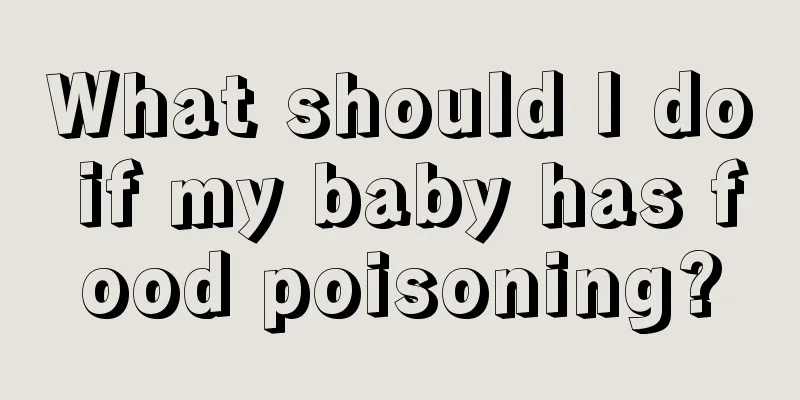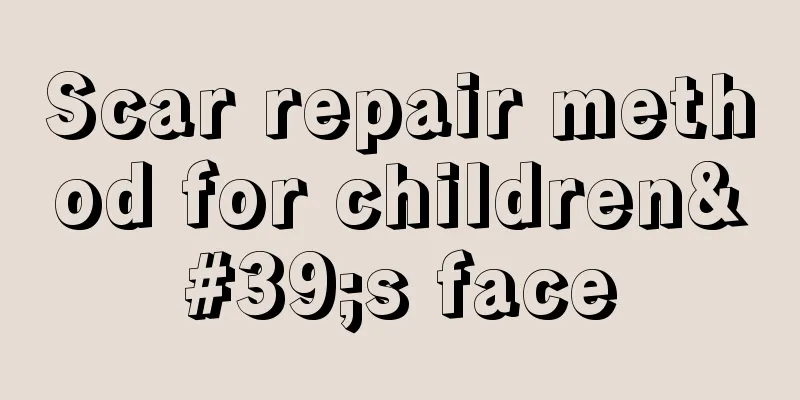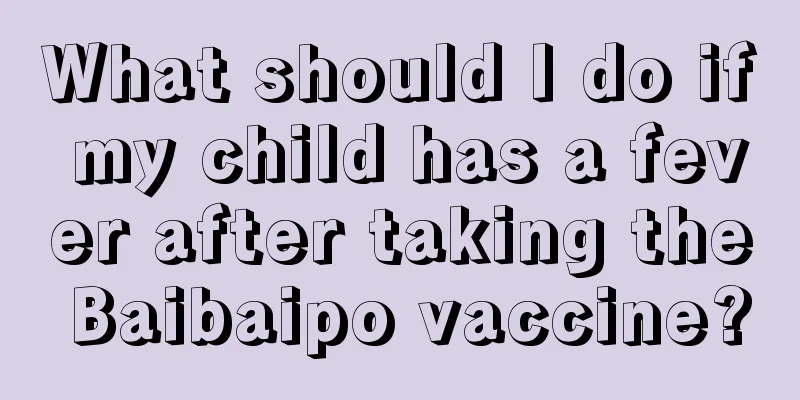What should I do if my baby has food poisoning?

|
In real life, accidentally eating certain toxic foods or not paying attention to the diet may cause food poisoning. If a baby accidentally gets food poisoning, it can easily cause symptoms such as nausea and abdominal pain. If it is not discovered in time, it may be life-threatening. Therefore, mastering some methods to prevent and treat baby food poisoning can minimize the harm. Most young parents do not have good experience, which may delay the disease. If you find that your baby suddenly has difficulty breathing, stomach discomfort, drooping eyelids, dilated pupils, or one or more of the following symptoms after eating a certain food, you should be alert to whether your child has food poisoning. It is recommended to seek medical attention immediately before it is determined whether the child has food poisoning, so that the doctor can make the most accurate examination. At this time, it is recommended that parents can sort out what the child has eaten before, the order in which they ate, etc. Of course, if you find that your child may be poisoned but has not yet vomited, it is recommended to wrap the toothbrush handle with soft cloth and then press on the child's tongue to induce vomiting. This will allow the child to expel the poison as quickly as possible. Of course, letting the child drink more water, especially salt water, can greatly reduce the impact of poisoning on the baby, but in the final analysis, it is still recommended to seek medical attention immediately and cooperate with the doctor's treatment. How to prevent: 1. Do not eat food of unknown origin, especially beef, pork, chicken and other poultry that have not been inspected by the quarantine department. 2. Spring is the season when various wild vegetables are on the market. However, it is best not to eat some wild vegetables of unknown origin, especially fungi, rashly, otherwise it is easy to cause food poisoning. 3. When eating cold dishes, you must try to choose fresh vegetables. It is also best to blanch them in water before eating, otherwise it will cause food poisoning. Every year, there are related cases of food poisoning appearing before us, and these cases may avoid life-threatening dangers due to proper handling, or cause some lives to leave our lives forever due to improper handling. Therefore, the alarm bell for preventing food poisoning and paying attention to scientific diet should be sounded continuously, especially for babies, who are a vulnerable group and need more care from adults. |
<<: What are the early symptoms of cataracts in children?
>>: What are the symptoms of orchitis in children?
Recommend
What should I do if my child always refuses to eat?
Many families are worried about what to do if the...
What is the height and weight standard for a five-year-old baby?
We all know that children’s developmental indicat...
What should I do if my 7-month-old baby gets angry?
In daily life, if you encounter some difficulties...
What are the factors that cause precocious puberty?
As the food market is getting better and better, ...
What are the standards for infant intelligence development?
Babies are angels in the eyes of every parent. Si...
What should I do if my child is rebellious during puberty?
When they reach adolescence, most children, wheth...
What to do if your child vomits after eating Aqi
Azithromycin tablets are a common Western medicin...
If parents are short, can their children grow taller?
Many parents are not very tall. In this case, it ...
The reason why babies keep blinking
In daily life, every parent hopes that their chil...
Sleep time and precautions for four-year-old babies
Sleep problems are a big problem that bothers me ...
What happens if your baby takes too much zinc?
In daily life, babies need to supplement the trac...
What is the best way to treat ADHD in children?
Some parents are worried because their children a...
What to do if your child coughs
We all know that every child will always have som...
Why does my 40-day-old baby not sleep during the day?
There are always many unexpected things in the ba...
How to treat gastritis in children
As people's living standards and quality of l...









